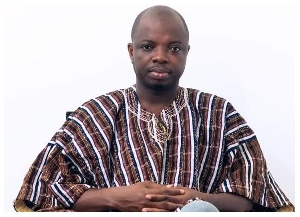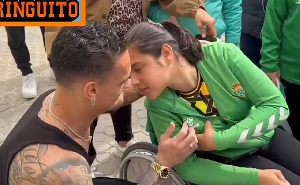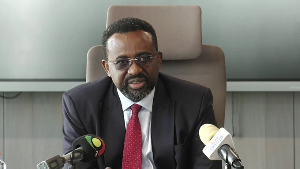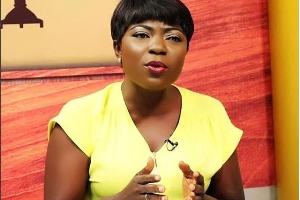Kofi Akosah-Sarpong looks at the voices and visions that have been enriching Ghana?s democracy in the last leg towards the December 7 general elections
There is nothing Ghanaians and the growing democratic institutions like more than extolling the virtues of Ghana?s growing democracy. A month ago during the Kumasi convention of ruling National Patriotic Party (NPP) President John Kuffour enthusiastically spoke of how in the almost four years of NPP rule Ghanaians have enjoyed freedom and choices and rule of law and increasingly moving away from the culture of fear and silence that have dominated the almost 20 years of the Flt. Lt. Jerry Rawlings? military and civilian regimes. In a way, as some Ghanaians say, ?Freedom is on the march, not limping.? As part of safe-guarding their marching democracy from political accidents, in a region with high history of instabilities, superstitious Ghanaians both at home and in the diaspora with nostalgia of long-running brutal military juntas, two weeks into the impending general elections, have mounted prayers and fasting, the most prominent being one from a Rev. Dr. Rosa Mills, of London, U.K?s Zion Banner Church, entitled ?A Novena Prayer For Ghana National Elections,? asking Ghanaians to recite the prayer between November to December 7 for safe general elections. But some Ghanaians see this not only as a sign of nervousness but also immaturity and lack of trust among themselves.
Nervousness about the general elections is demonstrated by Rawlings letter to diplomats and institutions about the apparent electoral wrongs of Ghana?s Election Commission, which he thinks are aimed at helping the NPP in winning the December 7 general elections, a situation he thinks could send Ghana to similar path of war-ravaged Liberia, Cote d?Ivoire and Sierra Leone. Ghanaians are coming to the conclusion that multiparty democratic elections is not only exhausting but intellectually demanding, especially a country and a region with shallow democratic roots, needing all the tolerance and mental energy one can surmount in the face of Ghana/West Africa?s culture and history of failed democracies, weak institutions, one-party autocratic and no-party military regimes, tribalism, states collapse, intolerance, wild politics, poverty, coup scare, and prophets and other spiritualists blinding the electorate from thinking about issues coherently.
In a measure that shows the Ghanaian/West African culture of deep prophetic predictions dancing confusingly with modern scientific opinion polls each of the main political parties, the NPP and the National Democratic Congress (NDC), pollsters claim their party is leading in the swelling opinion polls. The credibility of most of the myriad polls is in doubt. In the 2000 general elections opinion polls commissioned by the United Nations Development Programme, 52 per cent of 5,000 interviewed preferred candidate Kuffour to then Vice President Atta Mills who got 31 per cent. The contradictory nature of most of the current polls reflects the domination of the voter population by the youth who are mostly floaters with no traditionally emotional ties to the core political traditions of Danquah-Busia and Nkrumaist.
As movements of the democratic process heat up the cultural challenges of development are increasingly coming into the forefront. Ghanaians now scrutinize their culture and their development openly unlike the cries of ethnocentrism of yesteryears especially during the fierce nationalist era of first president Kwame Nkrumah. From the banning of the ?trokosy? system, a process where teenage girls are enslaved into shrines for sins committed by their parents in the Volta Region, to ways in which people, mainly women, alleged to be witches are inhumanly treated to how juju-marabou mediums and prophets hold sway over political elites, the democratic process has given Ghanaians the freedom to discuss their development process holistically.
With less than two weeks to go, Ghanaians enthusiasm for democracy is not matched by desire to help women participate fully. This is despite various government policies to do so. Almost 50 years after independence from colonial rule, which reinforced the African culture of patriarchy that relegates women to the sidelines of national political process, despite being the main carriers of socio-economic burden, women participation in politics is not growing. The awareness of this in itself is good for the democratic process. ?The low participation and representation of women in national politics is due to the country?s political system which is mainly structured around inequalities in gender relations,? Nana Oye Lithur, the Co-ordinator of the Africa Office of the Commonwealth Human Rights Initiative, has told a ?Gender economic and political power? conference in Accra, blaming the various political parties for carrying on the ?status quo? which had kept women relegated to the background in the nation?s body-politic.? Frustrated by the baby democracy not opening up enough to them some women such as Madam Agnes Donkor, Convention People's Party (CPP) parliamentary candidate for the Kwabre East Constituency, have been calling on other women to ?resolve to cast their votes for female parliamentary candidates in the upcoming Election 2004 to help to augment their numbers in parliament.?
With long years of military and autocratic rule that suppressed their innate democratic values grounded in patriarchic culture, some politicians and their supporters, intoxicated from their new found democratic freedom, have gone off course in using insults and threats, a sign of West African Oedipus complex of hunger for civil war, coup, instabilities, violence and hot headedness. But as democratic institutions grow, the Ghanaian polity is increasingly being educated to be civil in their electioneering campaigns. ?Election is not war of empty words - NCCE Chairman,? says a Ghana News Agency (GNA) front page. Another reads, ?CDD organises forum for candidates.? A forum organized by the Centre for Democratic Development - Ghana (CDD), with support from the Open Society Initiative of West Africa (OSIWA) and the United States Agency for International Development - Ghana (USAID) for aspiring parliamentary candidates in their various constituencies in Brong Ahafo Region enjoined the candidates to focus their campaign activities on issues concerning the needs of people in the constituencies instead of threats and insults.
With the youth dominating the Ghanaian voting population, the old traditional Danquah-Busia of capitalists and the old traditional Nkrumaists of social democrats core voters are increasingly shrinking, making floating voters much more higher. This means, all things being equal, issues and credible candidates should drive the last leg of the campaigns since most of the voters are not conservatives of any party leaning. For now democracy is on the match in Ghana, and the political parties, democratic institutions, diasporan Ghanaians and some international institutions are leading the charge.



















